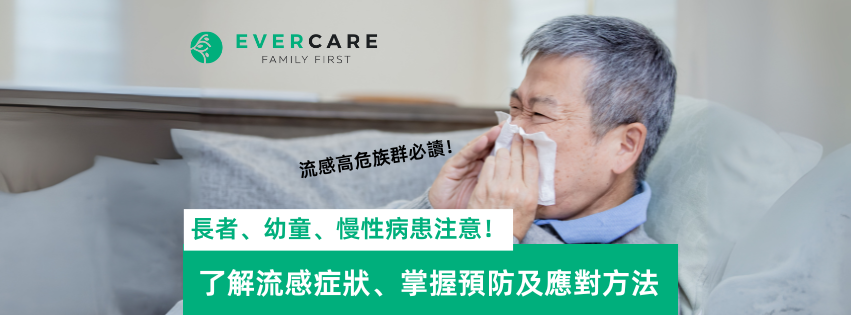When Wendy Yu’s mother suffered a disabling stroke, it derailed Wendy’s life as well. A little over a year into her caregiving role, she is still very much in a steep learning curve. We sit down with Wendy as she shares her insights coping with the aftermath of this debilitating experience and advice for new caregivers who are finding themselves on similar paths.
1. How and when did you become a caregiver?
I stepped up to be a caregiver after my mum suffered a severe stroke on February 7th, 2019. Our family sent her to Hong Kong Sanatorium & Hospital , where she underwent surgery. Since then, she has been in a coma, and hasn’t woken up. Seeing my mum in the condition she’s in, I’m still not used to it. I’m not saying I’m upset, but when I see her clothes and pictures lying around the house, I sometimes wonder why this happened to her.
2. In the face of adversity, what would have been most helpful to you as a caregiver?
I’m grateful that I have a great team who’s there for me. If there are any nursing issues, I can contact my agency Evercare. When issues regarding home modification arise, I’d contact my occupational therapist. If we detect any changes in my mum’s health condition, I can call my doctor up. I’ve got all the mentors I need in place helping me along the way, so I’m not lost.
3. You’ve been caring for your mom at home with the help of private nurses, could you share a little more about your experience with home care?
For me, home care was a huge step. When you’re in a hospital, you’re surrounded by nurses and doctors, you can ring a bell when you need them. When you’re back home, you can only dial 999 for emergency care. That is why I rely heavily on my private nurses to monitor my mum’s condition. They need to notify me on when to call the doctor for hospitalisation. They play an indispensable role in my caregiving journey.
4. How would you describe your relationship with your private nurses?
They have been my “hands and feet”. I wouldn’t have been able to manage my caregiving role if it weren’t for their support. When you hire help, it’s less about your ability to take care of your loved ones, but more about the need for professional care under certain circumstances. There are things you can’t do without professional guidance. For example, I tried to learn suctioning but I was afraid. It’s not easy for a health care professional to get certified. Their medical skills are not something you can develop overnight.
You might also like:
5. Any advice for caregivers who are providing post-stroke care at home?
Caregivers need to realise their limitations and seek professional help. For example, one might need an occupational therapist if they want to modify their home, especially if you’re moving your loved one back home from the hospital. As laymen, there are many things we simply don’t know. While we might know how to renovate, or have a contractor on hand who can help, we aren’t necessarily familiar with the specifics of how home modification works and how everything comes together. It’s not about having financial means, rather, it’s about whether you have the right sources.
If you need professional assistance, recognise it, and get help. Just as you would hire a lawyer when you face legal issues, or see a doctor when you’re unwell, if your loved one has a stroke, you must trust an occupational therapist to set up your home safely; if your loved one needs a private nurse, you must enlist an agency.
6. Why did you choose to hire nurses through a home care agency?
My friends were concerned about the trustworthiness of home care services, but I’m not because I know that these care professionals are all certified. I chose to hire nurses through an agency because there’s more security and quality control across different situations. I always say, it’s been a year since I first hired agency nurses, I could have recruited and dealt with them privately. However, I chose not to because if a nurse suddenly bail on me for whatever reason, either they decide to get married, take maternity leave or a holiday, I wouldn’t know where to look for a replacement. What an agency does is that it guarantees a replacement should unforeseen circumstances arise. You don’t have to worry about it.
7. If there’s one thing a new caregiver should know, what would that be?
To other family caregivers out there, make sure you monitor your loved ones closely. Take their body temperature regularly and make a note of warning signs. There are preventative measures you can take. When an accident happens, none can warn you ahead of time, and there’s no second chance. As such, you should always be prepared.
Most importantly, don’t hesitate to go to the hospital for a check-up if your loved ones feel unwell. With money, you can buy a lot of things, but you can’t buy time. Once you miss the timing, you can’t turn the clocks back. That’s why we pay very close attention to my mum’s progress. While we don’t expect her to recover soon, we constantly think about how we can help maintain her physical wellbeing. This is the only way she’ll have a chance of recovering.
其他話題 Other Topics
最新的文章 Latest Posts

喜歡我們的文章嗎?
超過3,000位照顧者已經訂閱我們的資訊!訂閱我們的資訊,你可獲得免費護理工具、專家護理知識和同路人分享。立即訂閱,也可以隨時取消。請在此填寫你的姓名和電郵地址:

